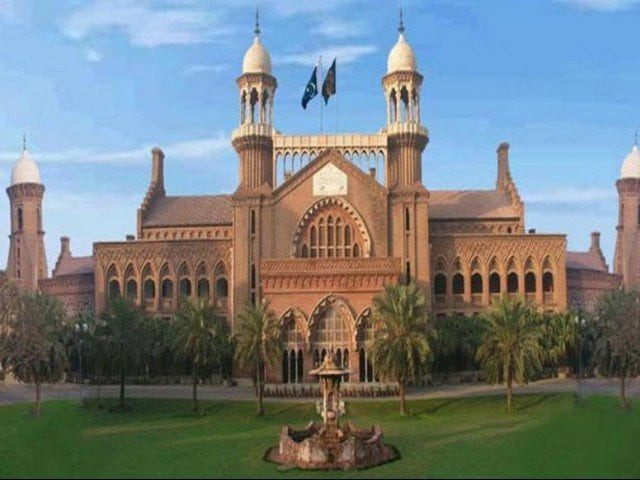ECP ordered to notify PTI’s reserved MPAs
PTI lawyers argue ECP 'duty bound' to notify MPAs on the priority list

The Lahore High Court (LHC) accepted the Pakistan Tehreek-e-Insaf’s (PTI) plea on Monday as it ordered the Election Commission of Pakistan (ECP) to notify the party's members on the Punjab Assembly’s five reserved seats that fell vacant following the de-seating of 25 PTI lawmakers over defection.
The watchdog had earlier this month stayed the notification of new MPAs on five seats of the Punjab Assembly reserved for women and minorities, saying the notification would be stayed until by-elections were held in the province on July 17.
Subsequently, PTI members filed different petitions challenging the ECP’s decision to defer issuing notifications. The party cast it as “injustice” and expressed misgivings about the rationale behind the stay as it manoeuvred to secure a favourable equation in the provincial assembly.
During the hearing on Monday, the plaintiffs’ counsels implored that the commission had failed to notify MPAs since the lawmakers’ de-seating even though the ECP was legally bound to do so.
The ECP’s legal team argued that they had not refused to notify the Punjab lawmakers, but rather would notify them after by-polls.
PTI’s lawyers Barrister Ali Zafar and Azhar Siddique, however, said that the election watchdog issues notifications on seats reserved for women and minorities following the lists provided by the political parties relying on the seats they won in general elections. The lists provided by the political parties could not be changed, they argued.
Read Opp scuppers bid to present Punjab budget
"The list provided by political parties are not subject to change," the counsel pointed out and recalled that when the PTI had approached the commission for notifying their members on the five reserved seats, the authority had contended that the de-seating of 20 members had changed the total number of seats for each party.
He said the stance taken by the commission was "illegal".
Punjab Advocate General Shahzad Shaukat said that nominations on reserved seats were supposed to be held after the general polls.
"Now, the positions of parties have changed because of 20 vacant seats. I believe the matter should be taken to a larger bench," he added.
The court directed the ECP to issue a notification regarding the reserved seats and declared its previous decision on the matter "null and void".
The petition
The petitioners, including PTI’s opposition leader in the Punjab Assembly Mohammad Sibtain Khan, implored in their petitions that according to Article 104 (5) of the Election Act, 2017, “Where a seat reserved for women or non-Muslims in an Assembly falls vacant as a result of death, resignation or disqualification of a member, it shall be filled in by the next person in order of precedence from the party’s list of candidates submitted to the Commission.”
According to the PTI priority list, Batool Janjua, Saira Raza and Fouzia Abbas were next in line for women's seats while Habkook Gill and Samuel Yaqoob were nominated for minority seats.
Read more PTI moves CEC to stop CM Hamza as 25 dissidents de-notified
They contended to the court that respondents – Chief Election Commissioner (CEC) Sikandar Sultan Raja and Provincial Election Commission, Punjab – were not willing to notify them as members.
The women and minority members who were on the priority list had repeatedly contacted the respondents and submitted their declarations as per the election rules but the respondents were reluctant to get the documents and were not notifying them.
They prayed the court that direction is passed to ECP and Provincial Election Commission to notify the five new MPAs on reserved seats.
LHC’s Justice Shahid Waheed heard the arguments on all sides and announced the decision directing the election commission to issue notifications to the concerned MPAs.



















COMMENTS
Comments are moderated and generally will be posted if they are on-topic and not abusive.
For more information, please see our Comments FAQ